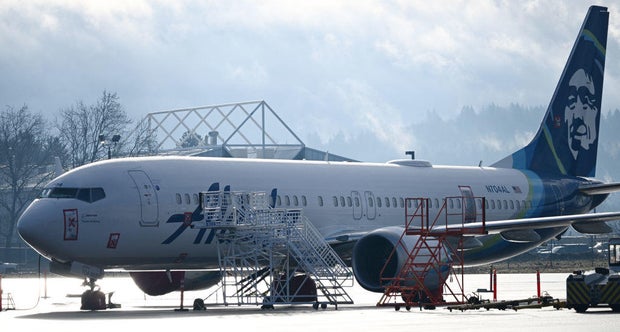[ad_1]
Federal prosecutors have recommended to top Justice Department officials that criminal charges be brought against airline manufacturer Boeing, CBS News has learned.
While the recommendation to the Department of Justice’s senior leadership is not a final decision, it is the latest development in the ongoing back-and-forth over Boeing’s alleged violation of a 2021 deferred prosecution agreement.
News of the recommended charges was first reported by Reuters.
The Justice Department earlier this year found Boeing had violated the deferred prosecution agreement and indicated in court filings it might proceed with charges against the company for conduct tied to two deadly 737 Max crashes in 2018 and 2019 and beyond.
The Justice Department has until July 7 to notify the federal court of its plans.
The Justice Department and Boeing did not respond to requests for comment.
The agreement stated Boeing would pay a $2.5 billion settlement and make certain organizational changes in exchange for the Justice Department dropping a fraud conspiracy charge after a period of three years. That three-year period would have ended in July, at which point the Justice Department would have closed the case against Boeing if it was determined the company had upheld its end of the agreement.
But in May, federal prosecutors wrote that Boeing “breached its obligations” and allegedly failed to “design, implement, and enforce a compliance and ethics program to prevent and detect violations of the U.S. fraud laws throughout its operations.”
Boeing responded in June, telling the Department of Justice it had followed the terms of the deal and disagreed it had violated the agreement.
While the agreement came about following the two 737 Max crashes, which killed a total of 346 people, Boeing has encountered other issues with its planes since then. In January of this year, the cabin door of an Alaska Airlines plane blew off mid-flight. In March, a person familiar with the matter confirmed to CBS News that prosecutors were looking into whether the blowout might affect the deferred prosecution agreement.
PATRICK T. FALLON/AFP via Getty Images
A whistleblower report from June raised concerns that Boeing was using faulty parts in the construction of its jets.
The report from Boeing employee Sam Mohawk alleges there was a “300% increase” in reports about parts that did not meet manufacturer standards when it resumed production on the 737 Max. Those parts were supposed to be removed from production tracked, but the report alleges that “the 737 program was losing hundreds of non-conforming parts” and “Mohawk feared that non-conforming parts were being installed on the 737s and that could lead to a catastrophic event.”
Another whistleblower, former quality manager Santiago Paredes, raised concerns about Spirit AeroSystems, the Boeing supplier that builds most of the 737 Max. Paredes told CBS News he was pressured to downplay problems he found while inspecting the plane’s fuselages. He said in public comments that he often found problems while inspecting the part of the plane that experienced the mid-air blowout in January.
Boeing CEO David Calhoun faced a Senate hearing last week, during which he said the company is “far from perfect,” but said it is “committed to making sure every employee feels empowered to speak up if there is a problem.”
—Kris Van Cleave and Kathryn Krupnik contributed reporting.
[ad_2]
Source


Leave a Reply